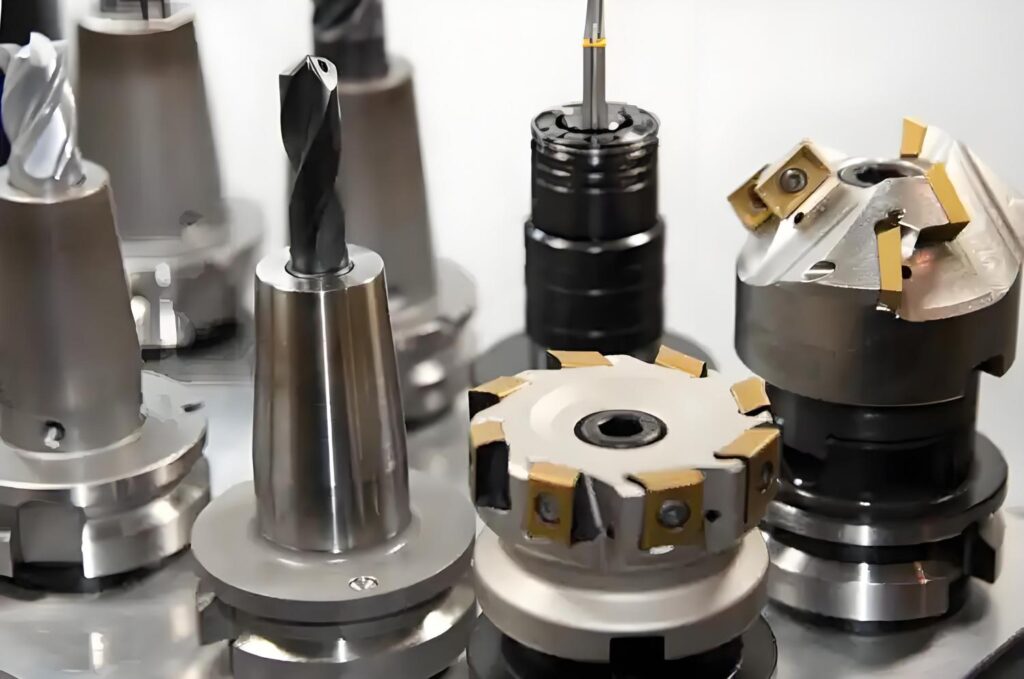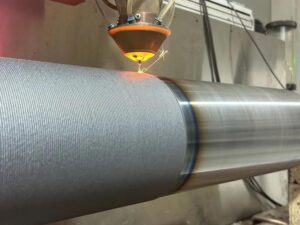What Is Tool Steel?
Tool steel is a category of carbon and alloy steels that are well-suited to be made into tools. As the name suggests, these steels are specially engineered for manufacturing and shaping other materials. Tool steels are known for their hardness, resistance to abrasion and deformation, and their ability to hold a cutting edge under high stress.
In industries like machining, metal forming, and die casting, tool steels are indispensable due to their robustness and reliability in extreme working conditions. Unlike general-purpose steel, tool steel is designed with specific applications in mind, and each variant is tailored to meet precise industrial needs.
Understanding tool steel is critical for businesses involved in manufacturing and machining, as choosing the right steel impacts both productivity and product quality.
Tool Steel Properties
Tool steel’s appeal lies in its exceptional physical and mechanical properties, which make it indispensable in demanding applications. These properties are tailored through alloying and heat treatment to meet specific needs.
Physical Properties
Physical properties of tool steel include characteristics like density, thermal conductivity, and melting point. These properties influence how the steel behaves during machining and in operational environments.
- Density: Tool steels have a density of around 7.8 g/cm³, typical of most steels. This consistency ensures predictable performance in manufacturing processes.
- Thermal Conductivity: Tool steels generally have moderate thermal conductivity, which helps dissipate heat during cutting or forming operations. This is critical for tools operating at high speeds or under intense friction.
- Melting Point: The melting point of tool steel varies depending on its composition but typically ranges between 1,400°C and 1,500°C. This high melting point ensures stability in high-temperature applications.
Mechanical Properties
The mechanical properties of tool steel define its ability to withstand stress, deformation, and wear. These properties are what make tool steel stand out in machining applications.
- Hardness: Tool steels are renowned for their high hardness, often exceeding 60 HRC (Rockwell Hardness Scale) after heat treatment. This allows tools to maintain sharp cutting edges and resist wear.
- Toughness: While hard, tool steels are engineered to resist fracturing under impact or stress, balancing hardness with toughness.
- Wear Resistance: The presence of alloying elements like vanadium and chromium enhances wear resistance, ensuring tools last longer under abrasive conditions.
- Compressive Strength: Tool steels exhibit excellent compressive strength, making them ideal for applications like stamping and forging dies.
These properties make tool steel a preferred material for tools that require precision, durability, and reliability in harsh conditions.
Tool Steel Grades
Tool steels are categorized into different grades based on their composition and applications. These grades are commonly grouped by the American Iron and Steel Institute (AISI) system.
Cold-Work Tool Steels (Grades: A, D, O Series)
- O1 (Oil-hardening): Ideal for general-purpose tools. Easy to machine and heat treat.
- A2 (Air-hardening): Offers good wear resistance and dimensional stability.
- D2 (High carbon, high chromium): Exceptional wear resistance; slightly more challenging to machine.
Hot-Work Tool Steels (Grades: H Series)
- H13: Great for hot forging and die casting; maintains hardness at elevated temperatures.
- H11: Similar to H13 but offers improved toughness.
High-Speed Tool Steels (Grades: M, T Series)
- M2: Commonly used for drill bits and cutting tools. Maintains sharpness under extreme conditions.
- T1: Excellent for high-speed cutting; retains hardness at red heat.
Shock-Resistant Tool Steels (Grades: S Series)
- S7: Combines strength and shock resistance; ideal for jackhammers, punches, and chisels.
Each grade is tailored to specific industrial tasks, and understanding the characteristics of these grades is essential for efficient material selection.
How to Machine Tool Steel?
Pre-Machining Tips:
- Select the Right Tooling: Carbide or ceramic tools are preferred due to their ability to withstand high temperatures and wear.
- Use Proper Coolants: Water-based coolants help in dissipating heat and extending tool life.
- Speed and Feed: Use lower cutting speeds and moderate feed rates to avoid excessive tool wear.
During Machining:
- Clamping and Fixturing: Ensure the workpiece is securely held to avoid vibration.
- Chip Control: Tool steel produces hard chips; use chip breakers to manage this.
- Monitoring Tool Wear: Regularly check the cutting tools for signs of wear to maintain surface finish quality.
Post-Machining:
- Heat Treatment: Tool steel is often heat-treated after machining to enhance its final hardness and performance.
- Surface Finishing: Grinding or polishing may be required for applications needing high surface quality.
Tool Steels Are Used For?

Tool steel’s versatility makes it a staple in numerous industries. Its ability to withstand high stress, wear, and heat makes it ideal for a wide range of applications. Here are some common uses:
- Cutting Tools: Drills, milling cutters, and lathe tools are often made from high-speed tool steels like M2 or T1, which maintain sharpness at high temperatures.
- Dies and Molds: Tool steels like D2 and H13 are used for stamping, forging, and injection molding dies due to their wear resistance and toughness.
- Punches and Shears: Shock-resistant tool steels (S series) are ideal for punches and shear blades that endure high-impact forces.
- Machine Components: Tool steel is used in components like bearings and gears, where durability and precision are critical.
- Automotive and Aerospace: Tool steel is employed in manufacturing precision parts for engines, turbines, and structural components.
Beyond industrial applications, tool steel is also found in everyday tools like knives, chisels, and hand tools, showcasing its broad utility. Its ability to be tailored for specific tasks makes it a favorite among manufacturers seeking reliable, high-performance materials.
Precionn’s Commitment to Tool Steel Excellence
For companies like Precionn, tool steel is more than just a material—it’s a foundation for delivering high-quality machining solutions. Precionn, a leader in the machining industry, specializes in working with tool steel to produce precision components that meet the highest standards. With a focus on innovation and quality, Precionn leverages advanced machining techniques and state-of-the-art equipment to transform tool steel into reliable, high-performance tools and parts.
Whether you’re seeking custom dies, cutting tools, or complex components, Precionn’s expertise ensures that every project is executed with precision and care. Visit Precionn’s website to learn more about their capabilities and how they can support your machining needs with tool steel and beyond.




